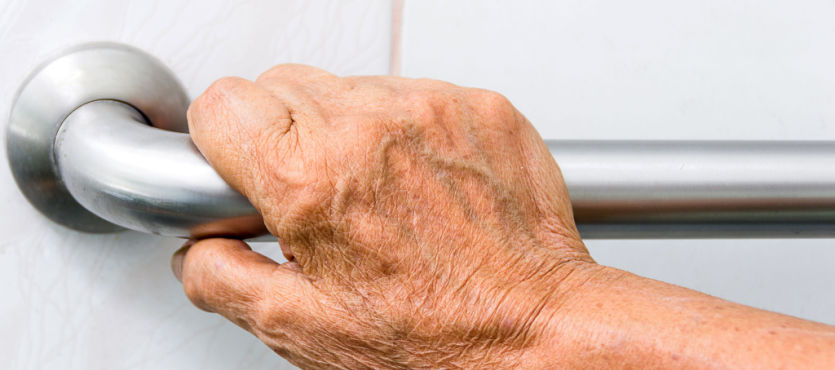General Safety Tips
- Consider installing a medical alert or buddy system
- Ensure that fire detector is running as intended and keep a fire extinguisher on every floor
- Avoid smoking in bed or when alone.
- Avoid getting up quickly and make sure you have your balance after sitting or laying down.
- Wear shoes that fit your fit well and have low heels.
- Ensure that your walking aid is correctly calibrated.
- Remove telephone or electrical cables from areas where your home sees a lot of activity.
- Use the recommended cleaners for your floor and avoid wax (especially on the stairs).
- Ensure that rails both inside and outside of your house are sturdy.
- Avoid using glare-free incandescent bulbs.
- Clean up after a spill promptly.
Bathroom Safety Tips:
- Consider leaving the light on in your bathroom at night.
- Be sure to have your bath aids installed in the right place and on the sides of your toilet.
- Use bathroom mats with a non-slip bottom and skid-proof your tub.
- To avoid burns, run the water heater to 120 degrees fahrenheit or below.
- Have clear labels for cold and hot faucets.
- Avoid using single sided door locks. Use the ones that can be locked from both sides.
- If possible, avoid bathing when no one is at home.
Kitchen Safety Tips:
- Keep your cooking area uncluttered and clean.
- Have plenty of lighting in your kitchen.
- Put labels indicating “on” and “off” positions on kitchen appliances.
- Store sharp and sensitive items in a drawer or rack.
- Avoid using kettles without an automatic shutdown mechanism.
- Make sure that all heavy items are stored at waist level.
- Avoid wearing clothes that are loose or too long when cooking.
- Check the expiration date of all items in your kitchen.
Drug Safety Tips:
- Consult with your doctor or pharmacist before taking new medication.
- Mark your new medication accordingly so as to not mix up with the older ones.
- Before taking any medication, view the labels under good lighting conditions and always take the prescribed dose.
- Dispose of medication that is past the date of expiration.
- At any cost, do not borrow medication from others.
- Consult with your doctor before mixing alcohol with your drugs.
- Consult with your doctor or pharmacist before mixing prescription and non-prescription drugs.

